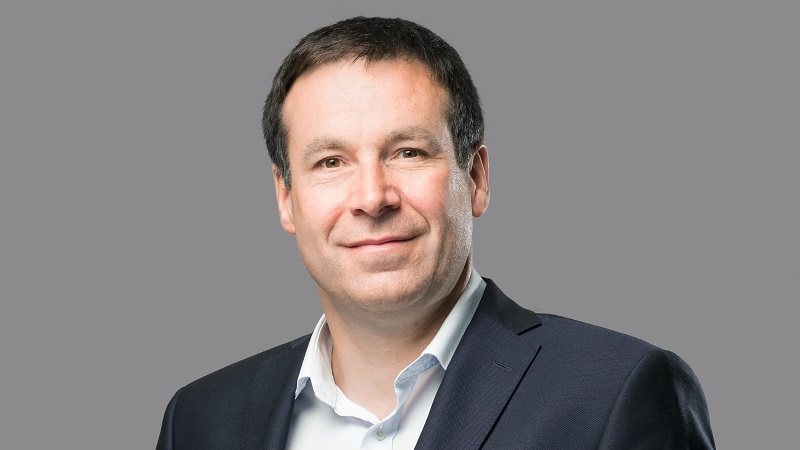Stephen Snowden’s Artemis funds may only have a two-year track record since they launched in Q4 2019, but he argues he has managed money through 20 years’ worth of events in that period, thanks to Covid-19.
“If you’re not willing to look at our historical track records from our time at other firms, that’s fine, but what are you going to learn by how we manage money, and how we perform in a crisis, that we haven’t already seen in the past two years?” he asks, in reference to the common wealth manager policy of only investing in funds that are at least three years old.
“I’m struggling to understand what else we could learn, given the severity of the event we have just been through.”
The appeal of Artemis for Snowden, and the three-strong team that initially followed him across from Kames Capital, was the fact he would be able to continue with the investment process he had been using for the past decade.
Kames, his former employer where he started his career before a seven-year stint at Old Mutual Asset Management, was to be absorbed into its parent company and become part of Aegon Asset Management. The Dutch asset manager drew together its investment teams from various locations to take a more global approach to running money, while Snowden and his team wanted to stick to what they were used to.
One point of departure from the funds he managed at Kames is a clear ESG policy. “When I was on gardening leave, I structured my lunch around listening to the World at One on BBC Radio 4. Barely a day went by when single-use plastic wasn’t discussed.”
That emphasised to him how dominant sustainability had become. In early 2019, when he was preparing to join Artemis, he still thought an ESG policy acted as a headwind for raising assets. Instead, there has been a sustainable investing boom within the fund management industry, with responsible investments now accounting for 5.5% of assets under management in the Investment Association universe, compared with 2.7% at the end of 2019.
“I continue to be surprised how quickly ESG has been adopted on a broad scale,” he says.
New year, same process
The Artemis Corporate Bond Fund, which Snowden co-manages with Grace Le, enters 2022 with £785.1m in assets, while the Artemis Target Return Bond, which he runs with Juan Valenzuela, has £219.9m.
Since launch, the Corporate Bond Fund has more than doubled the returns of its benchmark, delivering investors 15.1% compared with 7% in the iBoxx £ Sterling Collateralised & Corporate Index. The Target Return Bond Fund has returned 9.9% since launch.
The fact the funds were three months old when the Covid sell-off began had no bearing on the way the team managed money, says Snowden. “If the funds had been one, two or three years old I think we would have done the same thing. It’s not like we came to Artemis and invented a new investment process and style. We were largely replicating what we’ve done before.”
Luckily, the team had dry powder heading into the sell-off. “We were well positioned going into the pandemic, not because we had a crystal ball but because the market looked expensive and had rallied. We started to take some risk off the table, on a valuation basis, which proved timely.”
The first few trades were in Covid-impacted sectors for little or no yield. The initial Covid sell-off in February 2020 resulted in market moves from issuers and sectors that couldn’t be rationalised, says Snowden, something he ultimately blames on ETFs.
“Index trackers have been the big money takers in the investment-grade corporate bond space.” He argues ETFs are largely owned by “quick hands rather than long-term investors”.
“As the pandemic kicked off, obviously people wanted their money back, so the index trackers are forced to sell everything. So, they’re selling the Covid-impacted holdings but also the Covid resistant holdings. Basically, the phrase ‘throwing the baby out with the bathwater’ sums up the nature of index tracking.”
Turning a corner
The sell-off was more dramatic and prolonged than the team had anticipated. “Every day we would come in and buy a bit with the market falling aggressively. The next day the market would fall aggressively again, we’d regret what we bought yesterday and would be buying again.
“This went on for a few days and in some cases the valuation levels were even worse than we’d seen during the financial crisis.”
Liquidity means the old adage that you should never try to catch a falling knife did not apply to the corporate bond market, he says. “When the market changes direction you go from not being able to sell anything to not being able to buy anything.
“So, when the market starts to rally, if you haven’t been brave and bought into the fall it doesn’t matter what the theoretical price is, the bonds just rally back up in a vacuum and you don’t ever get the chance to buy in once there is a bounce.”
A new issue from Coca Cola gave Snowden confidence the market had turned a corner. “It reminded me of where we were in March 2009 during the financial crisis, when the new issue market opened with the biggest and strongest defensive names.
“Coca Cola was a clear sign to me that this was a once-a-decade opportunity to buy the world’s biggest, safest, bluest-chip companies’ bonds at very cheap yields. To my mind that was the start of the end.”
While he reckons the bulk of their competition didn’t buy into those first new issues, the market became “very crowded” within about a week. The team then delved into cross-currency valuations, selling euro and sterling holdings for US dollar holdings.
“You exploit the inefficiency that exists with bond markets between bonds issued by the same company with the same default risk, but for many reasons the valuation disconnect is huge.”
The funds were positioned for a second leg-up when the successful Pfizer and Moderna phase III results came through in November 2020. “We’d been building positions in Covid-sensitive areas of the market like hotels, pubs, airports, homes.”
Proving a point
Looking ahead, Snowden says he finds predictions of stagflation in 2022 mystifying. “There’s unquestionably going to be a lot of inflation this year but that will come with strong economic growth.”
The Artemis Corporate Bond Fund is overweight insurance, at 11.5%, and slightly overweight banks, which is the largest sector allocation at 21.3%. Utilities round out the top-three weightings, at 11.5%.
There are no further launches on the horizon for the team. “Let’s get these products to at least a third birthday and let’s try to raise more assets in them,” Snowden says. “We try to be good at what we do and not be all things to all people on all occasions.”
Snowden recently passed the reins of the Artemis Strategic Bond Fund to Rebecca Young, who joined the company from Janus Henderson in November, following the departure of managers James Foster and Alex Ralph. Young is based in London while the rest of the team is in Edinburgh.
“If you’d asked me pre-pandemic whether I’d be comfortable with that arrangement, I’d have said ‘no’. But given how strong our fund performance was over that time, it proves the point that it doesn’t matter where in the world you are.”
This article appeared in the January edition of Portfolio Adviser magazine.










